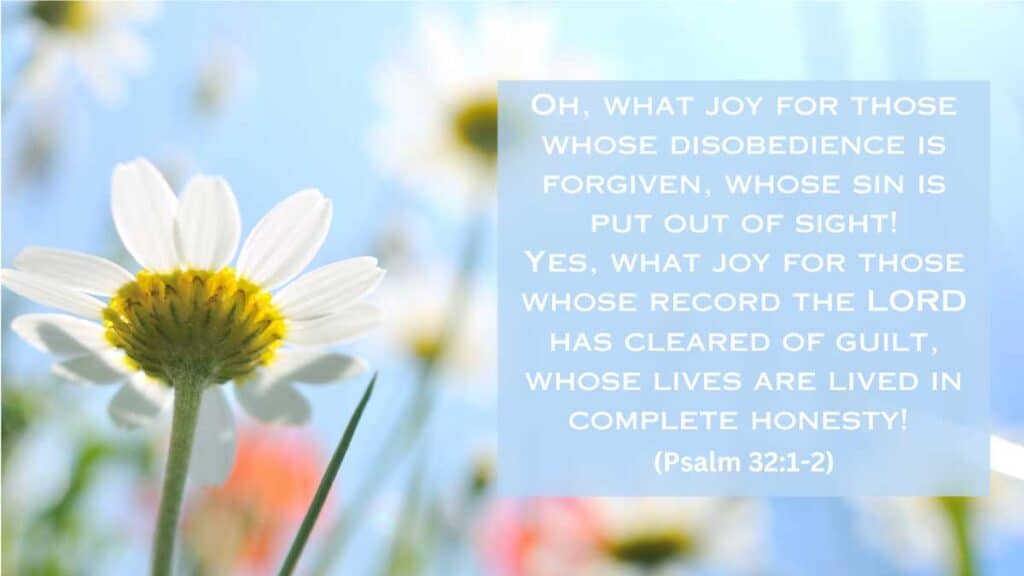When my mum was cleaning out her house in preparation for a move she went through her filing cabinet and unearthed a lot of treasures that were tucked away. One such treasure was this note that I wrote to her and my dad when I was eleven years old.

I have no recollection of what the “bad things” were I had done, nor does my mother, but clearly I was greatly distressed over the situation.
A loving parent delights in forgiving a child who acknowledges their sin. Whatever happened on that day was forgiven and put out of sight by my parents. Isn’t that how God deals with us and our sin?
If we confess our sins, he is faithful and just to forgive
us our sins and to cleanse us from all unrighteousness.
(1 John 1:9)
King David knew a thing or two about confession and forgiveness. Despite being an adulterer and murderer, God calls him “a man after my own heart.”
A beautiful thing about God is that our sin will not keep us from a relationship with him, but rather our attitude toward our sin and how we deal with it.
The Greek word translated “confess” means to “say the same thing as another.” In other words, when I confess my sin, I agree with God that what he calls sin really is sin?

David felt both the weight of his sin and the joy of forgiveness when he penned Psalm 32. It is referred to as a Maskil. That term, found in the Psalms, is considered by biblical scholars to mean, for meditation and to impart wisdom. With that in mind, please read this Psalm of David slowly and thoughtfully.
Oh what joy for those
whose disobedience is forgiven,
whose sin is put out of sight!
Yes, what joy for those
whose record the Lord has cleared of guilt,
whose lives are lived in complete honesty?
When I refused to confess my sin,
my body wasted away,
and I groaned all day long.
Day and night your hand of discipline was heavy on me.
My strength evaporated like water in the summer heat.
Finally, I confessed all my sins to you
and stopped trying to hide my guilt.
I said to myself, “I will confess my rebellion to the Lord.”
And you forgave me! All my guilt is gone(Psalm 32:1-5).
Augustine was a great sinner before his conversion to Christ. Psalm 32 was said to be his favorite Psalm. “Augustine had it inscribed on the wall next to his bed before he died in order to meditate on it better.” (James Montgomery Boice)
What a great God we have, who is willing and able to forgive our sins and to cleanse us from all unrighteousness. As you live a life of confession may you experience the joy of forgiveness.
I will forgive their wickedness and will remember
their sins no more.” (Hebrews 8:12)


